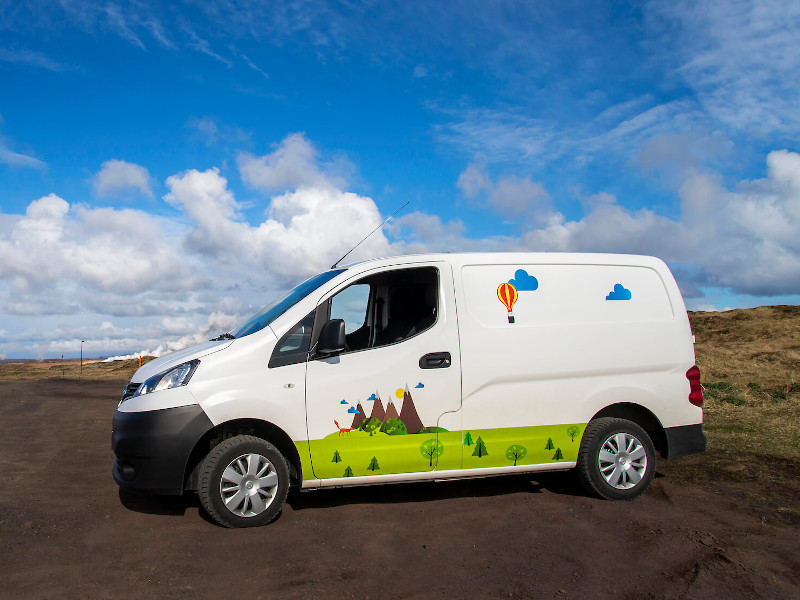New Zealand has evolved into a highly digital society, particularly when it comes to handling money. Whether you’re a backpacker crossing from Auckland to Milford Sound or renting a campervan for a family road trip, understanding how to pay for things in New Zealand will make your travels easier and more enjoyable. Here, cards reign supreme, with even small rural vendors often accepting electronic payments.
At Campervan New Zealand, we know just how important it is to feel confident navigating everyday purchases abroad. That’s why we’ve put together this comprehensive guide to help you use your credit and debit cards wisely while you explore Aotearoa.
Common Payment Methods in New Zealand
In New Zealand, the way people pay for goods and services has become increasingly digital, especially over the last decade. The once-cash-heavy society now relies heavily on a combination of EFTPOS, credit and debit cards, mobile payments, and emerging digital platforms.
You’ll find that cafés, supermarkets, campsites, petrol stations, and even food trucks are well-equipped to handle various forms of electronic payments. Local merchants favour speed and security, and most Kiwis themselves prefer tapping their card or phone over counting coins.
Here are the most commonly used payment methods in the country:
- EFTPOS (Electronic Funds Transfer at Point of Sale): In New Zealand, you'll hear the word EFTPOS a lot, it’s how most Kiwis pay for just about everything. This system links directly to your bank account and is used with local debit cards. However, it's worth noting that EFTPOS-only terminals won’t work with most international cards. Think of it as the local debit card system that pulls money straight from your bank account when you buy something. It's super common, quick, and convenient. But here's the catch: if you’re visiting from overseas and swipe your card at an EFTPOS-only terminal, it might not work. These terminals are often set up just for Kiwi bank cards. So, if your card has a Visa or Mastercard logo, you’re good to go in most places—but not everywhere. Always handy to have a backup just in case.
- Visa & Mastercard (Credit/Debit): These are nearly universally accepted, both in-store and online. They’re ideal for tourists and provide flexibility and convenience.
- Contactless Payments: Tap-and-go payments are the norm. Whether through card or mobile device, you’ll find that most terminals accept this method.
- Mobile Wallets: Apple Pay, Google Pay, and Samsung Pay are widely supported at contactless terminals, particularly in urban areas.
- Buy Now, Pay Later (BNPL): While not particularly useful for tourists, services like Afterpay and Zip are popular among locals for retail purchases.

Does New Zealand Accept Debit Cards?
Yes, New Zealand not only accepts debit cards, it prefers them. In fact, debit cards account for over 90% of in-store payments made by locals. However, there are nuances that visitors should understand to avoid surprises.
Many New Zealanders carry bank-issued EFTPOS debit cards that only work within the country and only for in-store purchases. These cards lack the global reach of Visa or Mastercard networks and are incompatible with online transactions. As a visitor, your debit card will need to be a Visa Debit or Mastercard Debit to ensure smooth usage.
If you’re using a foreign-issued debit card:
- Expect compatibility at major retailers, restaurants, and accommodation providers.
- Check for international transaction fees—these can add up over a long trip.
- Use ATMs strategically, as withdrawal fees and exchange rates vary widely depending on your bank.
- Watch for EFTPOS-only terminals, often found in rural shops and local dairies, which may reject your card.
Using a debit card is often the easiest way to stay within your travel budget, as funds are deducted directly from your account. It’s also a secure option, especially when paired with a mobile wallet that adds biometric security layers.
Credit Card vs. Debit Card in NZ: Key Differences
When travelling, choosing between a credit card and a debit card isn't just about personal preference—it’s about matching the right tool to the situation. Each has distinct advantages, and understanding these can help you make smarter financial decisions during your time in New Zealand.
A credit card provides added protection for large purchases, can help you earn rewards or travel perks, and is often required for things like hotel reservations and vehicle rentals. Conversely, debit cards are more budget-friendly and allow you to avoid debt while still enjoying electronic convenience.
Here’s a detailed comparison:
| Feature | Credit Card | Debit Card |
|---|---|---|
| Security | Often better fraud protection and chargeback rights | Depends on issuing bank |
| Foreign Fees | Usually 1–3%, varies by card | Can be lower, but also common |
| Budgeting | Allows flexibility but risk of overspending | Tied to real-time funds—better control |
| Rewards | May earn points, cashback, or travel benefits | Rarely includes perks |
| Best Use | Car rentals, large deposits, emergencies | Daily purchases, cash withdrawals |
If you plan on renting a campervan through us, using a credit card is typically required for security deposits. It also offers peace of mind in the case of cancellations or unexpected costs.
Tips for Using Your Card in New Zealand
Navigating a foreign payment system can feel daunting, but a few local insights can make a big difference. Here’s what you should know before swiping, tapping, or inserting your card:
New Zealand prefers PIN over signature for all card transactions. If your card requires a signature and you're in a self-checkout lane or unattended fuel station, you may run into issues. Always set a 4-digit PIN before you travel.
Tap-and-go is widely accepted and encouraged, especially for transactions under NZ$200. For purchases above that amount, you'll need to enter your PIN. Some smaller businesses might still have chip-only readers, so try inserting your card if tapping doesn't work.
It's also smart to carry a backup card. Lost or blocked cards are not uncommon, and having a secondary option can be a lifesaver—especially in rural or remote areas.
Finally, notify your home bank about your travel plans. This can prevent your card from being flagged or frozen due to suspected fraud.
What About Cash?
While you’ll likely rely on cards for 95% of your transactions, carrying a small amount of cash is still advisable. Some local markets, roadside stalls, or donation-based attractions prefer coins or small notes.
ATMs are accessible throughout New Zealand, including in smaller towns. The best practice is to use machines operated by major banks (like ANZ, BNZ, Westpac) to reduce the likelihood of extra fees and to ensure more favourable exchange rates.
Currency exchange desks at airports and hotels are convenient but often come with less competitive rates. If you must exchange cash, do it in the city at recognised outlets or rely on your debit card for ATM withdrawals instead.
In general, use cash as a backup, not a primary payment method.

How We Help You Pay with Ease
At Campervan New Zealand, we strive to make your experience as seamless as possible. That includes simplifying payments so you can focus on the adventure, not the admin.
We accept all major international credit and debit cards and also support contactless payment options. Our booking system is secure and mobile-friendly, allowing you to confirm your trip from anywhere in the world.
We believe in transparency, so there are no hidden card surcharges or mystery fees. Whether you're booking online or paying in person, you'll know exactly what to expect. And if you ever need help with a payment, our customer service team is just a call or email away.
Frequently Asked Questions
Can I use my foreign card everywhere?
Mostly yes. Visa and Mastercard are nearly universal in New Zealand. However, some small businesses may use EFTPOS-only terminals which don’t accept foreign cards.
What are the fees for using my card in NZ?
It varies by bank, but international transaction fees typically range from 1–3%. Check with your card issuer before travelling.
Do I need to notify my bank before travelling?
Yes. It’s strongly recommended to avoid your card being blocked due to suspected fraud.
Is it safe to use my card at petrol stations?
Yes, but be cautious with unattended Pay at Pump stations, which may require pre-authorisations and PIN entry. Use staffed stations when possible.

Swipe Right on
To get the most out of your financial setup while travelling in New Zealand, bring both a credit and debit card. Use credit for bookings, large purchases, and emergencies; reserve your debit card for everyday expenses and ATM withdrawals. Add a mobile wallet to streamline smaller transactions and carry some cash just in case.
With these tools in hand—and our support—you’re ready to navigate New Zealand’s roads and payment systems with total confidence. Happy travels!


 By
By








